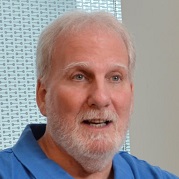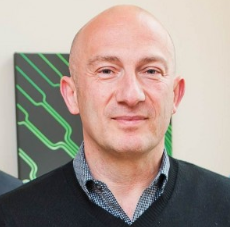CEMS Faculty and Staff
Contact Information
The Center for Engineering in Medicine & Surgery
114 16th Street
Room 1402
Charlestown,
MA
02129-4404
Phone: 617-726-3474
Fax: 617-573-9471
Email: ireis@sbi.org
Our Staff
Faculty
Directory of Faculty by Research Thrust
- (A) Biopreservation
- (B) Burns Trauma and Wound Healing
- (C) Cell Migration in Disease
- (D) Cell Sorting and Cancer Diagnosis
- (E) Global Health
- (F) BioMEMS and Nanoscale Engineering
- (G) Neuroscience and Behavior
- (H) Organ Reengineering
- (I) Tissue Engineering and Regenerative Medicine
- (J) Cell and Genetic Engineering
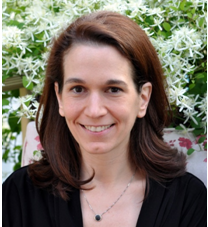
Shannon Stott, PhD
Contact by email
Research Thrusts:
A, D, F, I
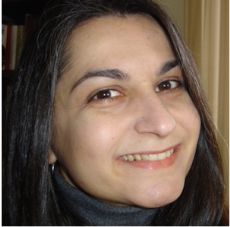
Marianna Bei, PhD
Contact by email
Research Thrusts:
B, H, I
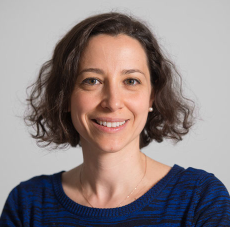
Basak E. Uygun, PhD
Contact by email
Research Thrusts:
A, B, H, I
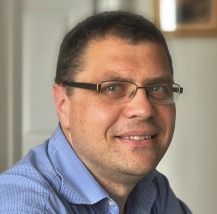
Daniel Irimia, MD, PhD
Contact by email
Research Thrusts:
A, B, C, D, E, F, G
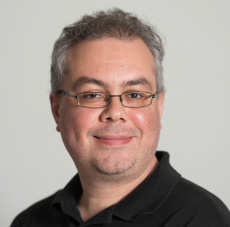
Korkut Uygun, PhD
Contact by email
Research Thrusts:
A, B, H
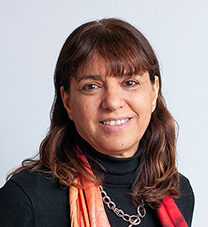
Irit Adini, PhD
Contact by email
Research Thrusts:
C, D, J
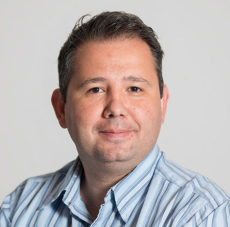
O. Berk Usta, PhD
Contact by email
Research Thrusts:
A, B, F, I
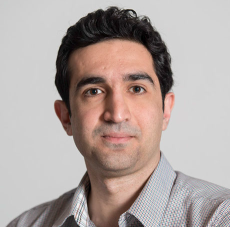
Nima Saeidi, PhD
Contact by email
Research Thrusts:
J

N. Murat Karabacak, PhD
Contact by email
Research Thrusts:
C, D
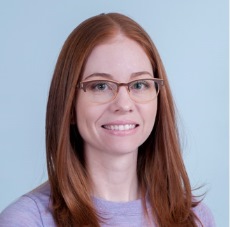
Rebecca D. Sandlin, PhD
Contact by email
Research Thrusts:
E
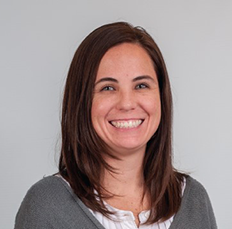
Shannon N. Tessier, PhD
Contact by email
Research Thrusts:
A, H, J
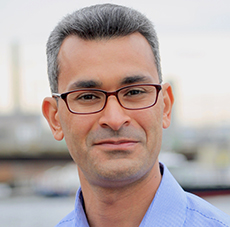
Mehdi Jorfi, PhD
Contact by email
Research Thrusts:
C, J, F, G
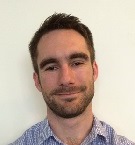
Felix Ellett, PhD
Contact by email
Research Thrusts:
B, C, J, F

Avanish Mishra, PhD
Contact by email
Research Thrusts:
D, E, F, J
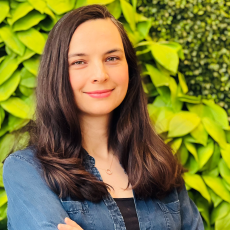
A. Aslihan Gokaltun, PhD
Contact by email
Research Thrusts:
B, A, F
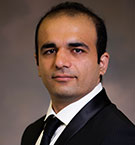
Saeed Nazemidashtarjandi, PhD
Contact by email
Research Thrusts:
B, J
Postdoctoral Research Fellows
Meet the postdoctoral research fellows from the Center for Engineering in Medicine & Surgery at Massachusetts General Hospital.
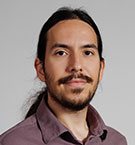
Alperen Abaci
Education:
PhD, Chemical Engineering, New Jersey Institute of Technology, 2024
BS, Chemical Engineering, Bogazici University, 2018
Contact:
Contact by email
Research:
My current research is centered on engineering vascularized composite allografts using patient-specific cells to repair complex tissue defects. We use the native extracellular matrix as a foundation to take advantage of its biochemical and architectural properties. Our goal is to develop novel methods that improve therapeutic options for severe tissue defects, while addressing the challenges associated with immune rejection. Additionally, I am exploring biomaterial-based cellular therapies targeting cranial defects for pediatric populations.

Raheel Ahmad, PhD
Education:
PhD (Magna Cum Laude), Process and Systems Engineering, Max Planck Institute for Dynamics and Self- Organization Goettingen, Germany and Otto von Guericke University Magdeburg, Germany, 2022
MS, Chemical and Biomolecular Engineering, KAIST, Republic of Korea, 2016
BS (Dean's Honour Roll), Chemical Engineering, UET Lahore, Pakistan, 2014
Contact:
Contact by email
Research:
My research focuses on the design and fabrication of a new class of stimuli-responsive hybrid hydrogel particles using high-throughput droplet microfluidics for the isolation of extracellular vesicles from clinical samples. I am also interested in evaluating the functionality of mitochondrial components in extracellular vesicles with the aim of discovering new biomarkers for cardiac diseases.
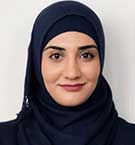
Rasha Al-Attar, PhD
Education:
PhD, Biochemistry and Molecular Biology, Carleton University, 2020
Contact:
Contact by email
Research:
During my graduate studies, I focused on investigating the biochemical and molecular responses to stress in resilient animal species such as freeze-tolerant wood frogs, hibernating bats, and hypoxia-tolerant naked mole rats. Additionally, I gained extensive experience in elucidating the molecular mechanisms underlying cell-cell communication in stem-cell-derived cardiomyocyte (hPSC-CM) models, including monolayers, organoids, and microtissues.
Now, as part of a multidisciplinary team of researchers at CEMs, I am applying my expertise to develop innovative preservation solutions. Specifically, I am leveraging genome engineering techniques to extend the preservation of zebrafish embryos and developing nature-inspired protocols to prolong the normothermic preservation of whole hearts. These efforts serve a dual purpose: first, to address the critical shortage of transplantable hearts by increasing preservation efficacy, and second, to establish an innovative ex vivo model for investigating the electromechanical integration of host-hPSC-CM grafts—a venture poised to revolutionize our understanding of cardiac regeneration and transplantation outcomes.
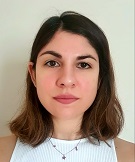
Ezgi Antmen, PhD, MSc
Ph.D., Biotechnology, METU, 2017
Contact by email
My current research focuses mainly on the microfluidic T-cell isolation and expansion from leukapheresis products for cancer immunotherapy manufacturing. I also work on 3D culturing of tumor cells and targeted nanoparticles for drug delivery to tumor cells.

Bradley W Ellis, PhD
Education:
BS, Bioengineering, University of Pittsburgh, 2015
MS, Bioengineering, University of Notre Dame 2019
PhD, Bioengineering, University of Notre Dame, 2022"
Contact:
Contact by email
Research:
My main research focuses on developing novel models and treatments to improve liver preservation for transplant. By utilizing tissue engineering and molecular biology techniques, I develop benchtop models to better understand the role of various parameters on liver health and functionality. We hope that this knowledge will lead to an increased use of marginal livers in transplant scenarios thus expanding the donor pool and patient access to liver transplant.
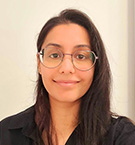
Kirandeep Gill, PhD
Education:
Ph.D., Chemical Engineering, University of Bath, UK, 2022
M.Eng., Chemical Engineering, Loughborough University, UK, 2017
Research:
I am a bioengineer with a background in chemical engineering and expertise in point-of-care diagnostics and artificial cells for early drug discovery. My current research is focused on studying neutrophil extracellular traps (NETs), an antimicrobial mechanism produced by neutrophils, and their role in various diseases.
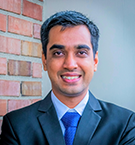
Rohil Jain, PhD
Education:
PhD, School of Mechanical Engineering, Purdue University, 2021
Bachelor of Technology, Mechanical Engineering, Indian Institute of Technology Delhi, 2013
Contact:
Contact by email
Research:
My research at the CEMS primarily focuses on developing liquid biopsy assay for analyzing circulating biomarkers of injury and rejection in solid organ transplants. I also develop non-invasive technologies for analyzing the quality of liver grafts for liver transplants. These technologies are used for analyzing health of the organ before the transplant when it may be machine perfused, or for analyzing health of the graft after transplantation in a patient.
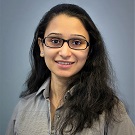
Purva Joshi, PhD
Education:
Ph.D., Mechanical Engineering, Carnegie Mellon University, 2021
M.S. Mechanical Engineering, Carnegie Mellon University, 2017
B.E. Mechanical Engineering, Pune University, 2015
Contact:
Contact by email
Research:
I am a mechanical engineer with a background in thermal sciences, solid mechanics, computation and engineering modeling. At CEMS, I am working on developing and optimizing preservation strategies for Anopheles mosquito and Drosophila embryos.
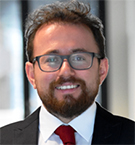
Murat Kaynak, PhD
Education:
PhD, École polytechnique fédérale de Lausanne (EPFL), 2021
M.Sc., The Pennsylvania State University, 2016
B.Sc., Istanbul University, 2011
Contact:
Contact by email
Research:
I am interested in the design, fabrication, and applications of microengineered devices. I utilize these devices to study the mechanics of living systems, by exploring the relationship between diseases and their emergent mechanical properties in single cells and tissues.
My current research involves developing acoustofluidic methods to measure the stiffness of spheroids during nonalcoholic fatty liver disease (NAFLD) progression. I employ micro/nanofabrication methods to build high-precision platforms that can continuously analyze the disease stages at high throughput.
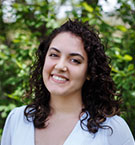
Natalie K. Livingston, PhD
Education:
PhD, Biomedical Engineering, Johns Hopkins University, 2024
BS, Bioengineering, University of Maryland, 2018
Contact:
Contact by email
Research:
I am a biomedical engineer with a background in the development of immunotherapeutic biomaterials. At CEMS, I am working on the application of microfluidic devices to the fields of cancer detection and cancer immunotherapy.
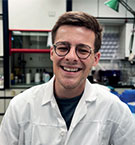
Arnaud Lyon, MD
Education:
PhD, Transplantation Immunology, University of Lausanne, Switzerland / Harvard Medical School, Boston, MA, 2025
MD, University of Lausanne, Switzerland, 2021
Contact:
Contact by email
LinkedIn profile
Research:
After graduating from the University of Lausanne Medical School in 2021, I undertook a PhD thesis focused on the impact of hormonal environment, aging, genetic background and dietary interventions on the immune response following renal ischemia-reperfusion injury. I gained extensive experience in murine microsurgical models, high throughput flow/mass cytometry and novel RNA sequencing techniques. I then joined the CEMS as a visiting graduate student in 2024.
My current research projects focus on cutting edge organ preservation techniques such as ex-vivo machine perfusion and cryopreservation which we are now developing using human, porcine and murine kidney grafts. Our long term goal is to extend the viability of transplantable kidneys and ameliorate the outcomes of kidney transplant while allowing for a safer use of organs exposed to longer periods of ischemia. We thus aim to expend the pool of transplantable kidneys and reduce the waiting time of patients in need for kidney transplantation.

Seok Joon Mun
Education:
PhD, Chemical and Biological Engineering, Korea University, 2024
BS, Chemical and Biological Engineering, Korea University, 2018
Contact:
Contact by email
Research:
My main research at CEMS focuses on developing assay methodologies based on neutrophil swarming to rapidly and accurately diagnose infections in patients. Simultaneously, I am also investigating changes in neutrophil phenotypes in patients during infections and sepsis. My ultimate goal is to develop a point-of-care diagnostic device that can be easily used anywhere without the need for expert assistance.
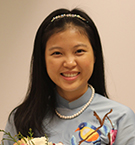
Khanh T. Nguyen, PhD
Education:
PhD, Biomedical Engineering, University of Alabama at Birmingham, 2022
B.Eng., Biomedical Engineering, International University of Vietnam National University – Ho Chi Minh City, 2017
Contact: Contact by email
Research:
I am working on developing novel methods to quantitatively assess organ injury and viability biomarkers that are predictive of transplantation success/outcomes. I am also interested in cryopreservation methods that utilize tools from molecular and cell biology to support cardiac and liver transplantations. These projects draw on my prior experience with a multidisciplinary research approach at the interface of engineering, chemistry, and life science. They also expand my training expertise in the areas of animal models and ex-vivo research techniques. Working at CEMS enables my passion for performing high-impact translational research that address clinically relevant problems with direct benefit to patients.

Maheen Rana
Education:
PhD, Chemical and Biological Engineering, The University of Sheffield, United Kingdom, 2023
MS, Chemical and Biomolecular Engineering, KAIST, Republic of Korea, 2019
BS, (Dean's Honour Roll), Chemical Engineering, UET Lahore, Pakistan, 2016
Contact:
Contact by email
Research:
My research is centered around the isolation and expansion of T cells from Leukopak by magnetic isolation in microfluidic systems to improve the process of developing cancer immunotherapies. I am also working on the development of microfluidic cell isolation technology for strategic gene editing of hematopoietic stem and progenitor cells (HSPCs) obtained from sickle cell blood products.
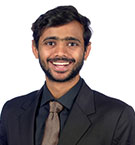
Sarthak Saha
Education:
PhD, Chemical Engineering, University of Massachusetts Amherst, 2023
Research:
My research focuses on developing microfluidic technologies for cell and gene therapy manufacturing. I integrate engineering with immunology and clinical biology to create scalable, translational tools. My goal is to enable precise, efficient, and clinically impactful cell-based therapies.
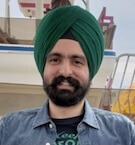
Gurjit Singh
Education:
PhD, Biology, Carleton University, Canada, 2022
MS, Biotechnology, University of Houston, Clear Lake, 2013
Bachelor of Technology, Biotechnology, Kurukshetra University, India, 2010
Contact:
Contact by email
Profile:
LinkedIn
Research:
My graduate training involved understanding unique biochemical and molecular adaptations in stress-tolerant animals. At CEMS, I am specifically interested in utilizing this knowledge to improve strategies in heart preservation and transplantation using classic model organisms (such as Zebrafish) and transitioning to a mammalian model to improve cardiac ischemia tolerance and recovery. Overall, the ultimate goal is to scale up this work in humans to alleviate organ shortage and transplantation in marginal hearts.
Technical Staff
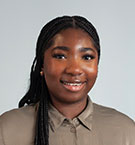
Emmanuella O. Ajenu
Education:
BS, Biological Sciences, The Pennsylvania State University, 2022
Contact:
Contact by email
LinkedIn profile
Research:
My research focuses on optimizing organ preservation and perfusion techniques and assessing organ viability using Resonance Raman Spectroscopy. This technology enables the investigation of the molecular and functional integrity of grafts by quantitatively analyzing mitochondrial energetics, particularly during ischemia-reperfusion injury. By identifying metabolic markers that predict early graft dysfunction, this work advances strategies to improve graft preservation and transplantation outcomes.
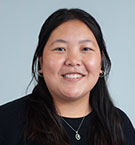
Maya Bolger-Chen
Education:
BS Biological Sciences, Syracuse University, 2022
Contact:
Contact by email
LinkedIn profile
Research:
My research focuses on heart preservation and assessment strategies of whole organs for transplant, specifically the heart. The main aim of this research is to use ex vivo heart perfusion as a tool for preservation and assessment for rat, porcine, and human hearts.
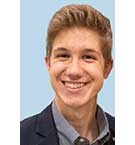
Luke Boudreau
Education:
BS, Chemical Engineering, University of Massachusetts - Amherst, 2022
BS, Biochemistry and Molecular Biology, University of Massachusetts - Amherst, 2022
Contact:
Contact by email
Research:
At CEMS, I have two main focuses of research. Firstly, I aim to optimize the storage of red blood cells through study of injury and changes in metabolism during supercooling and use of novel storage solutions. Additionally, I use liver cells to study the effects of drug induced injury to elucidate possible markers for early-phase drug toxicity screening as well as to study the downstream effects of steatosis on cell health, metabolism, and overall hepatic function.
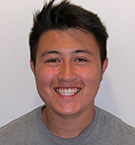
Zachary Chau
Education:
BS, Bioengineering/Biochemistry, Northeastern University, 2024
Research:
I am currently working on the optimization of CPA cocktails and protocols for the cryopreservation of Drosophila embryos and Anopheles mosquitoes, as well as ways to automate benchtop cryopreservation experiments.
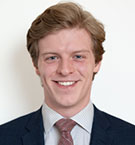
Quinn Cunneely
Education:
BS, Microbiology, The University of Alabama, 2023
Contact:
Contact by email
Research:
I work on translational projects leveraging technologies for circulating tumor cell (CTC) isolation to understand how cancer evolves during treatment. I also support the development of new strategies for isolation of CTCs and other rare cells.
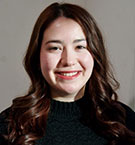
Antonia Dinicu
Education:
MS, Chemical Engineering, Worcester Polytechnic Institute, 2022
BS, Chemical Engineering, Worcester Polytechnic Institute, 2021
Contact:
Contact by email
Research:
My current research focuses on using genetic engineering as a tool for rejection detection in allotransplant models. By detecting rejection before clinical signs manifest, we can intervene before transplant failure.
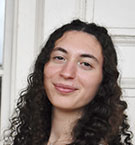
Nora Gaby-Biegel
Education:
BS, Neuroscience, Haverford College, Haverford, PA, 2024
Contact:
Contact by email
Research:
My research is in cryobiology, specifically testing different combinations of cryoprotectants (CPAs) to determine safe and effective cryopreservation methods.
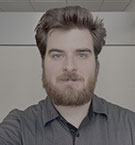
Hunter Hinnen
Education:
BS, Electrical Engineering, Brigham Young University, 2023
Contact:
Contact by email
Research:
I am researching ways to decrease the operational complexities and cost of complex microfluidic devices using fluidic transistors. I use “circuit design” to create specialized lab-on-a-chip devices for IVF treatment.
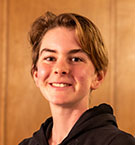
Matilda Holtz
Education:
BS, Bioengineering, University of California Berkeley, 2024
Contact:
Contact by email
Research:
One of my research focuses at CEMS is the preservation of blood components through supercooling, aiming to mitigate the storage lesion through the optimization of storage conditions and additive solutions.
My other research focus surrounds biomarker discovery through RNA sequencing of rare circulating cells isolated via novel microfluidics.
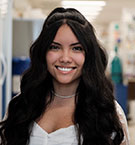
Adriana Payan-Medina
Education:
PhD, Medical Engineering and Medical Physics (MEMP), Massachusetts Institute of Technology and Harvard Medical School, (current)
BS, Chemical Engineering, University of Utah, 2023
Contact:
Contact by email
Research:
I am a PhD student and chemical engineer in the Health Sciences and Technology (HST) MEMP program at Harvard and MIT. My research focuses on advancing microfluidic devices for tumor cell analysis and enhancing computational approaches in the field.
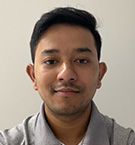
Dinesh Shrestha
Education:
BS, Biology, Biochemistry minor, The University of Texas at Tyler, 2024
Contact:
Contact by email
Research:
At CEMS, my current research focuses mainly on developing novel supramolecular hybrid hydrogels (SHHs) as burn wound dressings that can be translated to the clinic for wound healing applications. I aim to investigate the in vivo efficacy of SHHs in burn wound healing progress in small and large animal models.
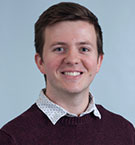
Mclean Taggart
Education:
BS, Chemical Engineering, University of Massachusetts Amherst, 2022
Contact:
Contact by email
Research:
My research revolves around prolonging the viable storage period of transplantable organs, focusing on long-term cryopreservation. My primary project is to develop a partially frozen kidney storage protocol, using discarded pig and human organs to model the approach.
Other Personnel
Personnel at the Center for Engineering in Medicine & Surgery, part of the Department of Surgery at Massachusetts General Hospital.

Jon F. Edd, PhD
Education:
PhD, Mechanical Engineering, University of California, Berkeley, CA, 2006
BS, Mechanical Engineering, University of Texas, Austin, TX, 2001
Contact:
Contact by email
Research:
As a member of the innovation team at the Center for Engineering in Medicine & Surgery, my primary focus is to develop rare cell isolation technologies. This includes antigen-agnostic isolation of circulating tumor cells (CTCs), CTC clusters, and bacteria, from whole blood.
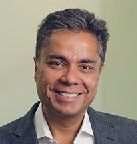
Ravi Kupur, PhD
Education:
PhD, Bioengineering, Clemson University, Clemson, SC, 1995
MS, Bioengineering, Clemson University, Clemson, SC, 1991
BE, Electrical and Electronics Engineering, India, 1989
Contact:
Phone: 781-363-3530
Contact by email
Website: www.micro-medicine.com
Research:
Innovation to bring nascent technologies through development, clinical translation and commercial launch. Specializing in rare cell isolation for detection, diagnosis and therapy. Current initiatives include the transition to commercial setting of the circulating tumor cell isolation platform & commercial development of automated microfluidic platform for autologous cellular therapy and diagnosis.
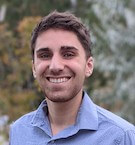
Christian Godfrey
Research Engineer
Education:
BS, Metallurgical and Materials Engineering, Colorado School of Mines, 2022
Contact:
Contact by email
Research:
My research focuses on developing novel tools and methodologies to characterize neutrophils. In addition, I fabricate, optimize, and employ a "swarming assay" to probe the collective behavior of neutrophils in response injury and infection.

Jaime Greatorex
Research Technician
Education:
B.S. in biochemistry from Roger Williams University, 2023
Contact:
Contact by email
Research:
I am currently working on neutrophil swarming assay's that will help study neutrophil behavior and activity.
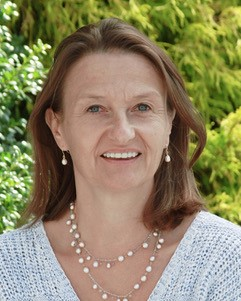
Catherine Heremans
Administrative Staff
Education:
PhD, Materials Science and Engineering, MIT, 1993
MS, Materials Science and Engineering, MIT, 1989
Eng Dipl, Materials Science, UCLouvain, Belgium, 1987
Contact:
Contact by email
Center for Engineering in Medicine & Surgery
We are the ambassadors of bioengineering, bringing technology to the forefront of biomedical research and the practice of medicine.

